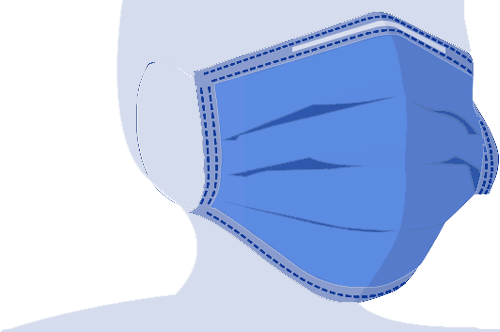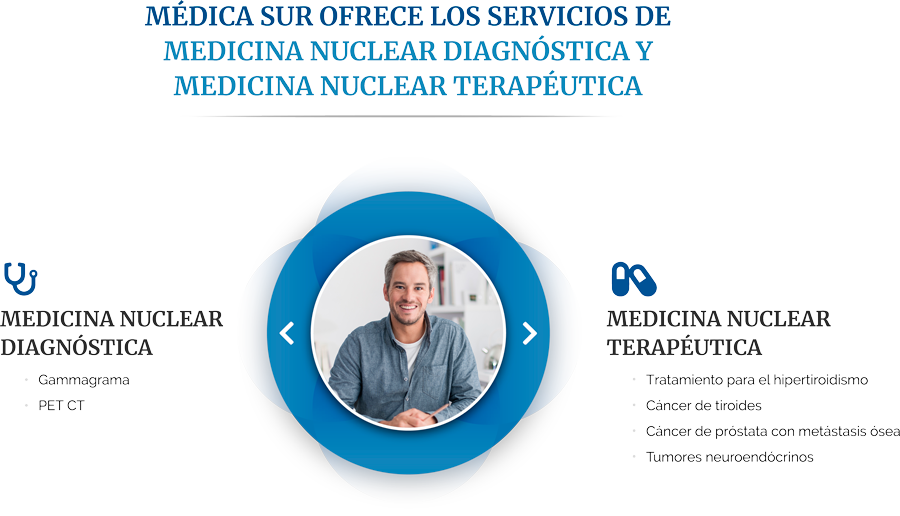
¡Seguimos cuidando tu salud! Recuerda: el uso de cubrebocas es obligatorio durante tu estancia en el hospital; con esto evitamos la propagación de enfermedades respiratorias.

¡Seguimos cuidando tu salud! Recuerda: el uso de cubrebocas es obligatorio durante tu estancia en el hospital; con esto evitamos la propagación de enfermedades respiratorias.
El Departamento de Medicina Nuclear e Imagen Molecular de Médica Sur ofrece servicios diagnósticos y terapéuticos, además contamos con equipos híbridos de última generación SPECT/CT y PET/CT, los mejores de México.
Nuestros médicos están altamente capacitados y cuentan con reconocimiento nacional e internacional. Para la realización e interpretación de nuestros estudios contamos con un staff multidisciplinario de médicos y técnicos conformados por:
Para la realización de estudios y/o terapias de medicina nuclear se requiere la administración de una dosis de radiación, la cual es totalmente segura, sin embargo, para poder realizar viajes internacionales se requiere contar con una carta médica que justifique la incorporación de radiación en su cuerpo, este documento será entregado por nuestro personal, por lo que se podrá hacer el viaje sin ningún problema.

Haz una cita
(55) 5424 7200 ext. 7234Lunes a viernes 8 a 20 hrs.
Sábado 8:30 a 13 hrs.

Llámanos o
haz una cita